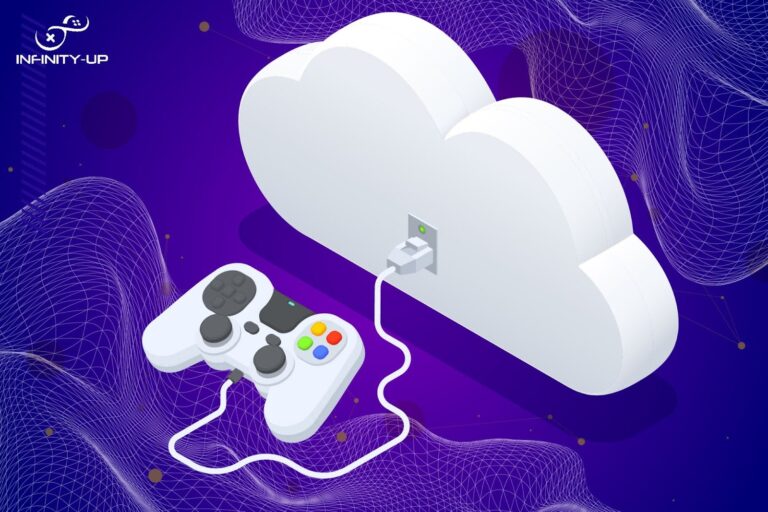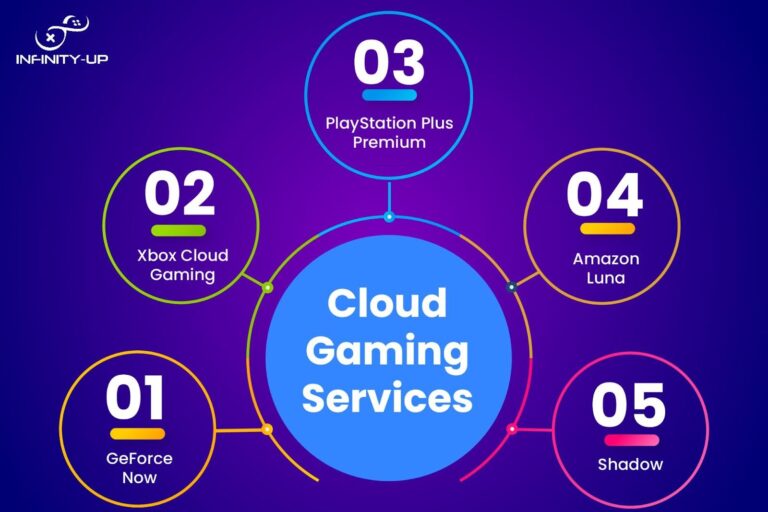Cloud Gaming and Digital Experiences
Cloud Gaming and Digital Experiences
The gaming world is always changing, and one of the biggest innovations today is cloud gaming. This technology makes it easier than ever to play games without needing expensive consoles or powerful PCs. In this blog, we’ll explain what cloud gaming is, look at its main benefits, discuss the challenges it faces, and explore what the future holds for this exciting way to play. Whether you’re a casual gamer or a hardcore player, cloud gaming is something you’ll want to know about!

What is Cloud Gaming?
Cloud gaming is a technology that lets players enjoy video games without needing to download or install them on their devices. Instead, the games run on powerful remote servers in data centers, and the gameplay is streamed directly to the player’s device in real-time. The player’s inputs, like controls and commands, are returned to the server, ensuring a smooth and responsive gaming experience.
How Cloud Gaming Works
Cloud gaming is a streaming service that allows players to stream video games over the Internet without needing high-end local hardware. Instead of running games on a console or PC, virtual servers handle processing, enabling access on smartphones, tablets, smart TVs, and low-spec computers. These services operate by running games on remote servers and transmitting the output to the user’s device in real time. Similar to video streaming platforms like Netflix or YouTube, cloud gaming provides seamless content delivery while incorporating the interactivity essential for gaming.
Cloud Gaming Services
Some popular cloud gaming services include:
GeForce Now:
Streams PC games from platforms like Steam and Epic Games.
Xbox Cloud Gaming (xCloud):
Part of Xbox Game Pass Ultimate, offering console-quality games on various devices.
Amazon Luna:
A cloud gaming service with multiple game channels and seamless integration with Twitch.
Shadow:
Offers full remote access to a high-end PC for gaming and other tasks.

Benefits of Cloud Gaming
Instant Access and Flexibility:
Cloud gaming offers unmatched accessibility and flexibility, allowing players to enjoy their favorite games anytime, anywhere, without being tied to a specific device. They can start playing on a home console and seamlessly continue on a smartphone during their commute. Additionally, cloud gaming eliminates the need for expensive hardware, making high-quality AAA Games accessible to a wider audience without requiring next-generation PC or Consoles. This democratizes gaming, providing a more convenient and inclusive experience compared to traditional setups.
No Need for High-End Hardware:
Games run on powerful cloud servers, so players don’t need expensive gaming PCs or consoles. Works on low-end devices, including smartphones, tablets, and smart TVs.
Instant Play & No Installations:
No need to download or install games; just click and play. Reduces storage space requirements on devices.
Cross-Device Compatibility:
Play on multiple devices with a seamless experience. Switch between PC, mobile, and smart TV without losing progress.
Regular Updates & No Patches:
Games are updated on the cloud, eliminating the need for user-side updates, waiting for downloads or patches before playing.
Cost-Effective Gaming:
Avoids the high upfront cost of gaming hardware. Subscription models provide access to a vast library of games for a monthly fee.
Enhanced Security & Reduced Cheating:
Games run on secure cloud servers, minimizing hacking and cheating risks. Less exposure to malware since no direct downloads are required.
Better Multiplayer & Scalability:
Reduced latency and improved matchmaking with cloud-based servers. Can support a larger number of concurrent players.
Supports Emerging Technologies:
Integration with AI, AR/VR, and the Metaverse for next-gen gaming experiences. Leverages 5G for faster, smoother gameplay.

Challenges and Future of Cloud Gaming
1. Latency and Performance Issues
One of the biggest hurdles is latency. Cloud gaming relies on real-time streaming, meaning any network delay can negatively affect gameplay, especially for fast-paced games like FPS and fighting games. Factors contributing to latency include:
- Internet speed and stability
- Distance from data centers
- Server processing delays
2. Bandwidth and Data Consumption
Cloud gaming’s reliance on high-speed, consistent internet means that players with poor connections often experience frustrating lag and delays.
3. Cost and Subscription Models
Many cloud gaming services use a subscription model, which can become costly over time. Some also require users to purchase games separately on top of the subscription fee. Gamers should consider whether these expenses are justified compared to investing in traditional gaming hardware.
Future of Cloud Gaming
Cloud gaming’s future looks promising with 5G and edge computing reducing latency and AI-driven optimization enhancing streaming efficiency. Cross-platform gaming will enable seamless transitions across devices, while affordable subscription models and cloud-native game development will drive adoption. Additionally, cloud gaming will play a key role in the Metaverse and XR integration, enabling engaging experiences.
INFINITY-UP Expertise in Cloud Gaming
INFINITY-UP has always focused on engaging, dynamic, and cutting-edge gaming experiences. Our game development approach covers everything from concept creation to post-launch support, providing clients with end-to-end solutions, whether for Gamification in Education or Web3 Games.
Conclusion
As cloud gaming continues to progress, it is set to deliver a more seamless and accessible experience, reshaping the gaming industry and unlocking new possibilities for players worldwide. With ongoing technological advancements and improved internet infrastructure, the future of gaming is undoubtedly in the cloud! Request a free quote with INFINITY-UP.
FAQ
Q1: Can cloud gaming replace traditional gaming setups?
A: Streaming games provide convenience and accessibility, but they may not entirely replace traditional gaming setups. Dedicated gaming hardware still offers enthusiasts the best performance and customization options.
Q2: What internet speed is required for cloud gaming?
A:
The required speed varies by service, but generally:
- 10 Mbps for 720p gaming
- 20 Mbps for 1080p gaming
- 35+ Mbps for 4K gaming
- A wired connection or 5GHz Wi-Fi is recommended for the best experience.
Q3: Are cloud gaming services available on all devices?
A: Cloud gaming services are available on various devices, including PCs, Macs, smartphones, tablets, smart TVs, and some gaming consoles. However, older devices, low-end hardware, and outdated operating systems may face compatibility issues. A stable, high-speed internet connection is essential for smooth gameplay. Availability depends on the service provider, device compatibility, and network infrastructure.

